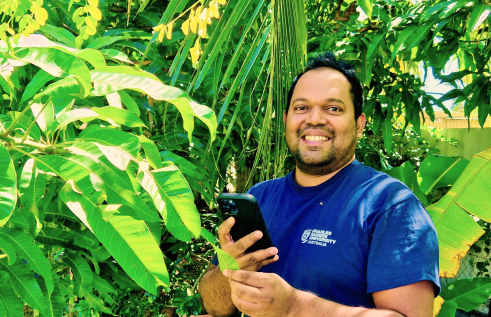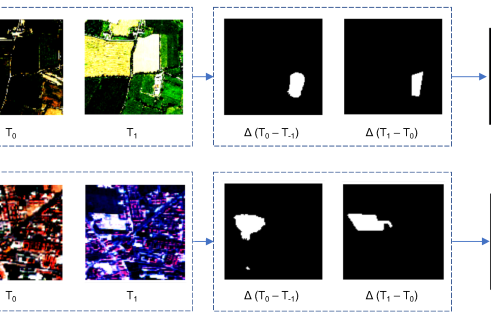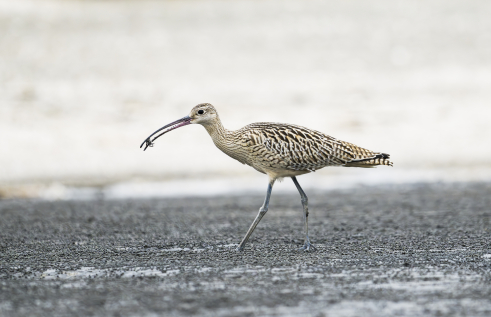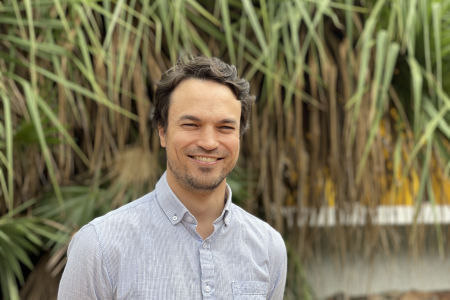News
ARC fellowship a new milestone for CDU’s research portfolio
Charles Darwin University (CDU) researcher Dr Clément Duvert recently became the first Northern Territory recipient of the Australian Research Council (ARC)’s Discovery Early Career Researcher Award fellowship.
The prestigious fellowship will fund Dr Duvert’s research into the greenhouse gas emission of tropical streams in Northern Australia for three years.
Dr Duvert, from the Research Institute for the Environment and Livelihoods (RIEL), aims to quantify the amount of greenhouse gas leaked from streams in the Top End and North Queensland to help inform carbon budgeting and gas abatement policies in Australia.
“Some of the carbon that we thought was stored in our ecosystems is actually leaking out of soils and ending up in streams and rivers. Once there, it is then released to the atmosphere as carbon dioxide or methane through the turbulence of streams,” Dr Duvert said.
“My research quantifies the amount of carbon that is released from streams, which could have implications for climate change mitigation strategies.”
According to Dr Duvert, although reforestation could combat climate change, some percentage of the carbon dioxide absorbed by trees could still be leaked back to the atmosphere via streams, rivers and wetlands.
“With all the rainfall we get here in the wet season, this process of gas emission from streams can be particularly important in the tropics, which is why my project is focussed on this region,” he said.
“To measure and map out the carbon dioxide and methane leaked, I will be using gas sensors and injection experiments to quantify the turbulence in 100 to 150 streams across the region.”
The result from his research will contribute to the better alignment of government policies.
“It’s important to know how much carbon dioxide is stored in the ecosystem at a national and international scale,” Dr Duvert said.
Receiving the ARC fellowship is a big step forward for both Dr Duvert’s research development and CDU’s research portfolio.
“It’s a huge opportunity and I’m very humbled and excited to receive the fellowship. It means I will have enough support to continue my research and collaborating with colleagues in Australia and overseas,” he said.
“It’s also putting CDU on the map and I hope there will be more ARC fellowships in the future.”
With more than $450,000 in fellowship funding for three years, Dr Duvert plans to recruit a new PhD student to assist him in this research project.
“I hope to start a team to work on this project while also collaborating with partners at James Cook University in Cairns,” he said.
As a geochemistry and hydrology expert, Dr Duvert also works with colleagues at RIEL and the Commonwealth Scientific and Industrial Research Organisation (CSIRO) to explore how fracking could affect the yield of natural springs in Mataranka.
Related Articles

Rooting out plant diseases: Are computers ready to run our farms?
Nature is still too complex for artificial intelligence (AI) modelling to be effective, but the tipping point is close, according to a new study that found the technology may still trip at the last real-world hurdle.
Read more about Rooting out plant diseases: Are computers ready to run our farms?
Tech on the treetops: How AI can protect forests
The Artificial Intelligence model was developed to detect changes in forest cover.
Read more about Tech on the treetops: How AI can protect forests
Volunteers protected Darwin wildlife for 50+ years, but new research suggests it’s time to stop winging conservation efforts
Volunteers have shouldered the burden of shorebird conservation in the Top End for more than half a century, but new research from Charles Darwin University (CDU) suggests it’s time for the government to take responsibility for all of the Northern Territory’s residents – including those with wings.
Read more about Volunteers protected Darwin wildlife for 50+ years, but new research suggests it’s time to stop winging conservation efforts
